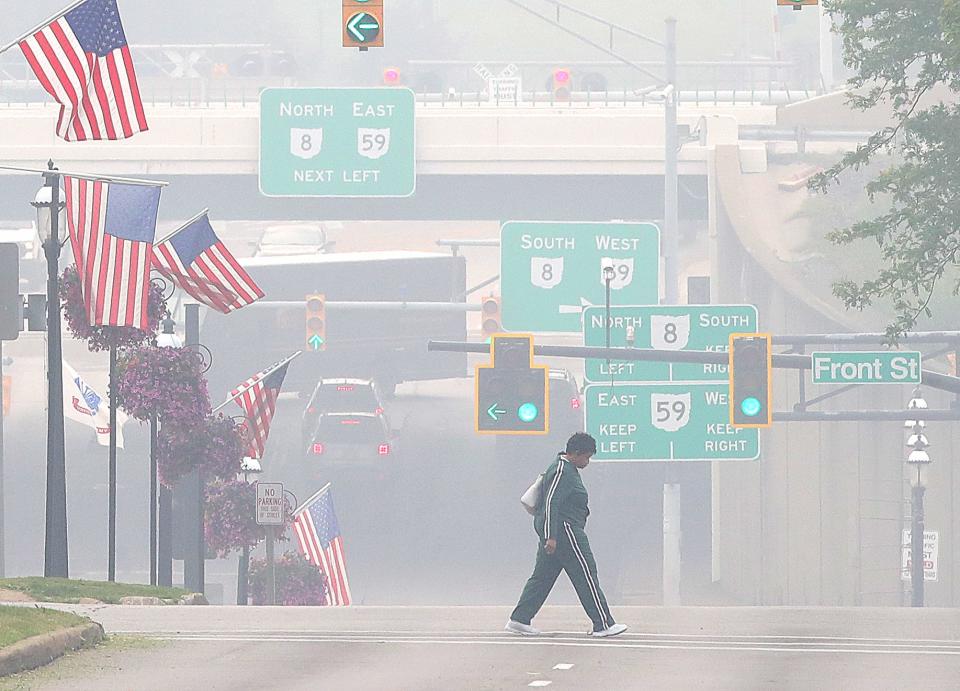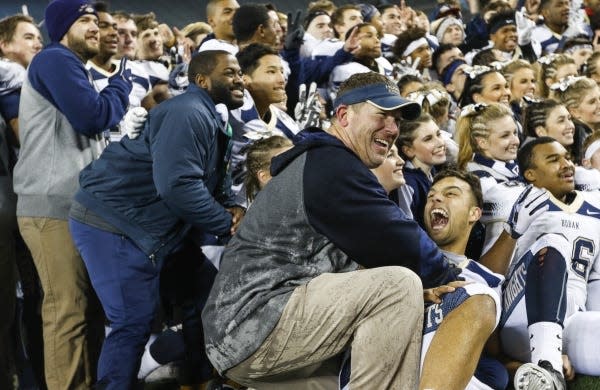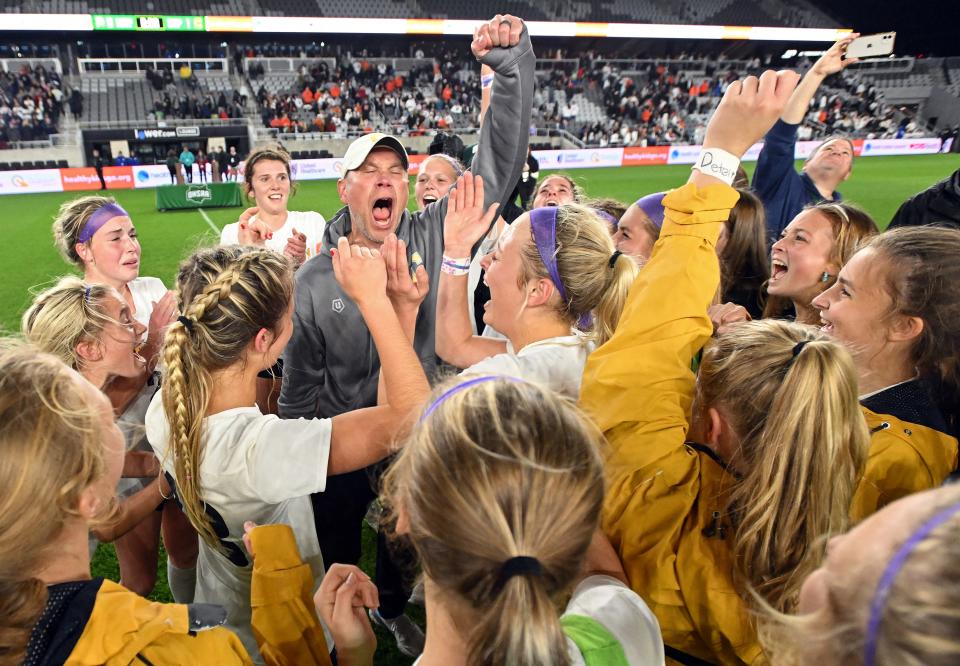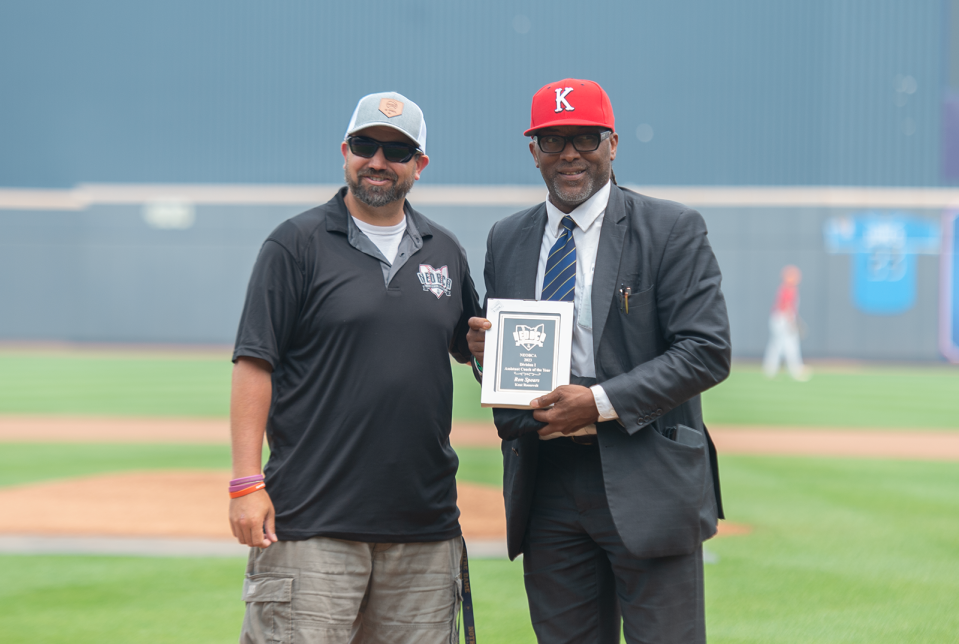'Everybody is talking air quality': Canada wildfire smoke alters some sports

Some area high school teams are finding their preseason practices and conditioning are up in the air this summer.
The reason: Air quality levels continue to fluctuate and reach unhealthy levels at times because of Canadian wildfires.
Hudson boys soccer coach Steve Knapp said his team's practices were shut down a couple weeks ago when the region's air quality was at its worst.
"We didn't do anything, which is fine," Knapp said. "It is that part of the season where I don't want the kids doing a whole lot anyways. ... I think it was a Wednesday, Thursday and Friday, and then Saturday and Sunday we don't do anything anyways. I think we did lifting one day inside and then called it for the rest of the week."
The Akron Beacon Journal, Canton Repository and Massillon Independent reached out to Akron-Canton area medical officials and high school coaches to ask whether workouts, practices and exercises are being adjusted, postponed or canceled as athletes prepare for fall sports.
What guidelines are in place? And will games and events potentially be postponed or canceled because of air quality issues?
Here's what we found out.

What officials from Akron Children's Hospital, Ohio High School Athletic Association are saying about air quality
Medical professionals are still gathering information regarding air quality.
"Trainers make decisions about lightning before they turn it over to the officials. They have to make decisions about heat this time of the year when we are always worried about the heat index and now all of a sudden everybody is talking air quality," said Dr. Joseph Congeni, medical director of Akron Children's Hospital's Sports Medicine department.
"Trying to understand air quality in simple terms and what are some things we can sink our teeth into, I think it did catch some of the sports bodies a little bit by surprise," he said. "They don't have specific and definitive guidelines."
OHSAA Director of Media Relations Tim Stried told the Akron Beacon Journal in an email last week "it would be up to the Ohio Department of Health to set any guidelines on that situation first, and then the OHSAA would take it from there."
If the state health department suggests limiting outdoor activities, "we will determine if there is anything we need to pass along to our schools," he said.
Congeni said the OHSAA is "following the position statement from the National Federation of State High School Associations, but when you read that there are not a lot of guidelines."
The national guidelines state: "If the health effect category is in a zone where your state or local health department discourages outdoor activity, all practices and contests should be moved indoors or cancelled. If activities are moved indoors, you must check with the maintenance staff to ensure existing HVAC systems provide properly filtered indoor air. If the HVAC system cannot appropriately manage the burden of pollutants in the air, indoor air quality may be worse than the outdoor air and it is not appropriate to practice or workout indoors."
Congeni said the 30 area schools that work with Children's Hospital have done a nice job adjusting to conditions this summer.
At the college level, Congeni said leaders in the Mid-American Conference also are "meeting almost daily on the phone trying to make decisions."
What area high school coaches are saying about air quality
Louisville City Schools Athletic Director Terrie Horn said they have been in constant contact with their trainer, who works for Akron Children's Hospital, since the start of the air quality problems.
Communication among the trainer, coaches and the district takes place daily if not hourly, she said.
"There is real-time communications," Horn said. "(The trainer) will let us know if they recommend moving indoors or rescheduling practice for a later time or even canceling."
Besides checking air quality readings throughout the day, they also are following recommendations by the Environmental Protection Agency and the NCAA air quality safeguards.
Coaches are monitoring students with lung and heart issues and limiting cardio workouts, Horn said. They are taking extra breaks, staying in the shade and moving indoors when needed.
Kevin Yoder, athletic director at Perry Local Schools, said they are updating their emergency plan to include air quality.
"If we have an athlete who has an adverse reaction, we want to take every precaution with a plan in place," he said.
Yoder said the district also looked at the NCAA's guidelines. "What we came up with based on those recommendations is, with an air quality index of 150 to 200, we're going to shorten our time outside and reduce intensity of the workouts, and excuse anybody with respiratory issues," he said. "Anything above 200, we're canceling or moving anything outside to inside."
Yoder said Perry's athletes have not had any health-related incidents.
"A couple of times, our football team came inside to work out when the air index was high," he said. "And the cross country team canceled a couple of outside conditionings. We want to make sure our athletes are safe."
Chris Lapish, athletic director at Tuslaw High School in western Stark County, said they have a protocol in place.
"This summer during the wildfire's presence, I have told my coaches to either go inside if we have the availability or postpone practice outdoors that day," he said. "They are required to look every day at the National Weather Service air quality warnings."
Hudson football coach Jeff Gough said "using your best judgment" is important. He said he approaches air quality concerns "the same as when it gets too hot."
"If it is a particularly bad day and we are able to access the gyms or adjust and go watch film, we are going to go ahead and do that," Gough said. "There was just one day the last week in June where we ended up in the gym and took a little bit of extra time for installs and on the whiteboard and watching film."
"When the heat index gets in the 90s to 100, let's shorten practices, have extra water breaks, try to be indoors and take the typical precautions that we are trained on through all of the training we have to do for coaching certifications, " Gough added. "... With the air quality, everybody is concerned specifically for people that have any sort of asthma or respiratory issues. That is where I think it could really get dangerous."
Congeni said athletes with asthma need to be up to date on their medication and bring their inhalers. He said he is "happy with how everybody is understanding about air quality" and "making sure that the most important thing is keeping kids safe."
Hoban football coach Tim Tyrrell said some workouts have been "shorter with a lot of water breaks and break time."

Copley girls soccer coach Wally Senk said he follows guidance from the medical professionals.

"We go by what our trainer tells us," Senk said. "We recently got an email that said if the air quality is going to be poor, to consider moving indoors or cancel completely. Obviously, there are limited places where we can practice indoors. The earlier you go in the day [outside], the better because, obviously, the hotter it gets the more it magnifies the air quality. We had a couple of sessions at our 6:30 a.m. start time and we have also moved inside once."
Woodridge cross country coach Jeff Howard said the air quality "hasn't affected preseason conditioning so far."
"I know that we have had a few kids that have opted out of some of the optional things that we do because of this," Howard said. "I know our school back on those real rough days a few weeks ago disallowed any school functions outside. They had to be inside, but we were not engaged in anything at that point."
"For us, it has not been a huge impact. We have been running. Most of our kids have been at our 6 o'clock things. I run in the morning and I see the Firestone kids out running in the mornings. I don't think there has been a formal interruption, but there are some individual families that have made some decisions related to it."
Are summer golf and baseball tournaments tournaments impacted by poor air quality?
Hoban boys golf coach Quinn Parker said "it has been status quo of practicing and playing in [summer] events."
"I don't think there has been a single [youth summer] tournament that has been canceled," Parker said. "I would say most of the kids are out every single day practicing. When it comes to golf, you are not overextending yourself. I haven't noticed it either when I am out playing. I can not speak to the high-impact sports and if this is affecting their breathing."

The Northeast Ohio Baseball Coaches Association held four two-hour high school all-star games at Canal Park in Akron on June 28 when the air quality was "unhealthy" according to tracking site AirNow.gov. The Ohio Environmental Protection Agency stated at that time that the Air Quality Index was in the “unhealthy for sensitive groups” to “very unhealthy” ranges for Summit and surrounding counties.
"We followed the city of Akron and the RubberDucks," said NEOBCA President and Stow baseball coach Aaron DeBord. "Nothing was closed in the city of Akron. The University of Akron had stuff going on, the city of Akron had other events going on and the RubberDucks let things play out. In the morning, we said whatever Akron wants we will do. We took their lead and we moved on as scheduled. ... As the day went on, the air got a lot better."
DeBord said to his knowledge summer baseball games in Summit County with high school-age players have not had cancellations because of air quality, but some little league games have been cancelled because of it.
Includes reporting by Canton Repository staff writer Charita Goshay and Massillon Independent staff writer Amy Knapp.
Michael Beaven can be reached at mbeaven@thebeaconjournal and is on Twitter at @MBeavenABJ.
This article originally appeared on Akron Beacon Journal: Poor air quality from wildfires impacts Canton-area high school sports

